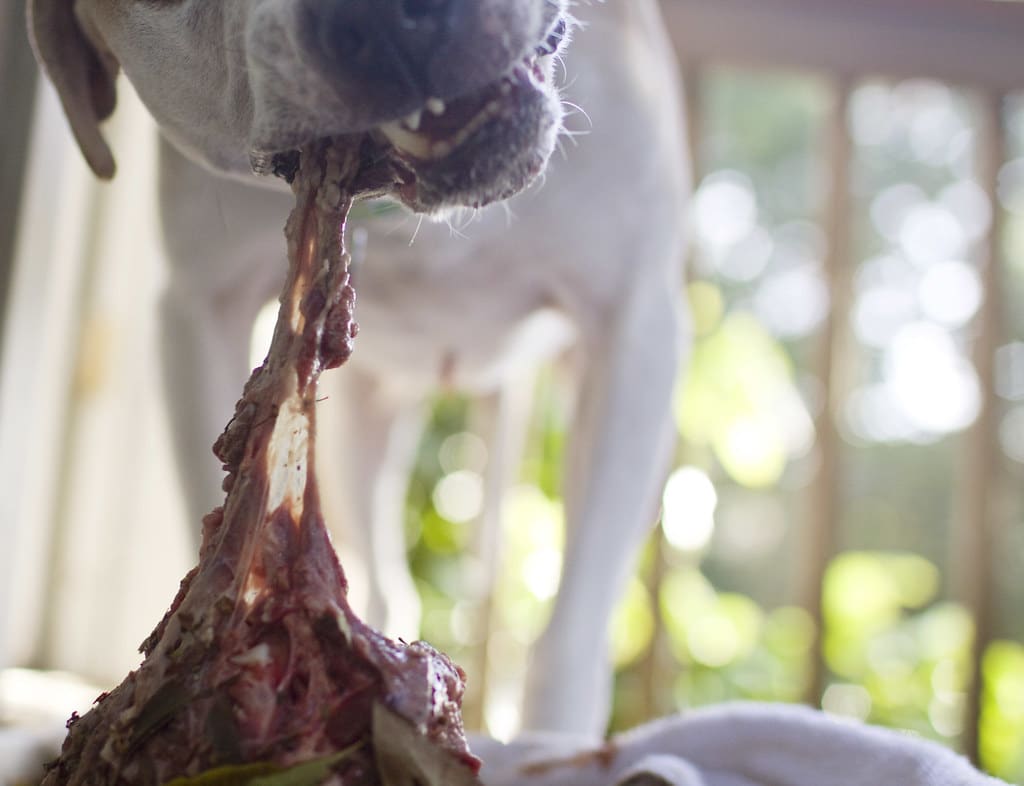
Pet owners are increasingly offering raw meat-based diets for their animals.
Those concerned about their pets’ health should still consult veterinarians for nutritional advice. The research examines scientific studies on the nutritional value and hazards of raw meat pet diets and their impact on general health.
Numerous pet owners have recently abandoned veterinarian-recommended diets in favor of more “natural” and “homemade” options.
Unlike veterinarians and other specialists, most pet owners now feed their animals the same way they provide for their families. While nutrition is vital, social and cultural variables frequently influence food selection and feeding patterns.
Consumption of raw food is a point of contention between pet owners and veterinarians. As a result, how can you make prudent, risk-averse choices?
Why Few Veterinarians Support Raw Dog Food
Raw pet food appears to be less nutrient-dense than prepared pet food and may increase serious illnesses.
Pet owners are highly advised not to feed their dogs raw or unprocessed meat, eggs, or milk, according to the American Kennel Club (AKC), the American Veterinary Medical Association, and other organizations.
Uncooked meat and dairy products may include pathogens like E. coli, listeria, and salmonella, which are capable of causing disease or death in dogs and humans.
According to a 2011 study published in the Canadian Veterinary Journal, the only evidence supporting raw food diets for pets is anecdotal. The study concluded that veterinarians should also educate pet owners on the health dangers of providing raw food to their animals.
According to her sources, Jennifer Larsen, a clinical nutritionist at the University of California, Davis’ Department of Veterinary Medicine, does not recommend raw food diets for pets. According to her, the trend might be traced back to pet food marketing, which places a premium on components over nutrients, and the general “romanticization of nature,” which links dogs with wolves.
According to Larsen, many pet owners prefer raw food diets because they dislike commercial dog food, avoid specific ingredients, or believe alternative pet foods are more nutritious.
Suppose someone believes something is trustworthy, such as an internet celebrity veterinarian, and that raw food is the way to go; that it is how dogs evolved and that it is significantly healthier, and that kibble is dangerous. In that case, Larsen says it is tough to convince those individuals that traditional pet foods are perfectly safe and adequate for most pets.
Most veterinarians believe that commercial pet food offers appropriate nutrition for pets. Larsen believes traditional dog food is safe and nutritionally balanced. The Food and Drug Administration regulates all pet food products, including kibble, canned food, and commercially available raw diets.
When promoting pet food, raw, human-grade meat is regularly included, leading some pet owners to believe that raw meat is safe for dogs to consume. While the ingredients in pet food are labeled similarly to those in human food, Larsen adds that they do not always correspond. Compared to boneless, skinless chicken breasts purchased at the grocery store, pet food chicken has flesh, skin, and, occasionally, bones.
On the other hand, some veterinarians advocate using alternative pet foods that are more natural.
Karen Becker, a wellness veterinarian, advocates for minimally processed and nutritionally balanced raw dog foods to promote overall health. She asserts that this practice is more “biologically appropriate” than the conventional method, referring to how dogs ate before domestication.
Becker asserts that an excessive number of pets are fed “fast food,” which includes kibble and canned pet food produced with feed-grade components.
While some advocates believe that raw food is superior for pets, scant evidence supports this claim. Dogs are not wolves and should not ingest raw flesh and bone how wolves do, according to Jerry Klein, the chief veterinarian of the American Kennel Club.
According to Klein, through thousands of years and generations of domestication, dogs evolved into omnivores capable of digesting the same things as humans.
Despite assertions, Klein warns against feeding raw meals to dogs. All claims about the benefits of giving raw food to dogs are anecdotal and unsupported by scientific studies. Indeed, the vast bulk of research on the subject has concentrated on the dangers of raw diet infections. And the potential ramifications for both the animals and their keepers.
According to Becker, additional research is necessary to determine the true benefits and safety of all dog foods, including kibble, canned food, and raw diets, to compare and contrast them.
Veterinarians should propose the healthiest diets possible for each particular animal, considering the animal’s age, breed, and any pre-existing health problems. According to Larsen, with all of the evidence and the lack of benefit, it becomes difficult for anyone concerned with animal health or a public health commitment to suggest raw diets.
Related Question:
Is raw feeding a factor in the development of worms in dogs?
Avoid raw feeding — According to theveterinarynurse.com, deliberate feeding of raw meat and offal to dogs is a significant source of protozoal transmission, as well as tapeworm transmission in dogs. By avoiding raw feeding entirely, parasites transmitted via this means would be eliminated.


![[VIDEO] Starving Dog And Her Malnourished Puppies Were Saved Just In Time](https://poochfun.com/wp-content/uploads/2022/04/VIDEO-Starving-Dog-And-Her-Malnourished-Puppies-Were-Saved-Just-In-Time-350x230.jpg)